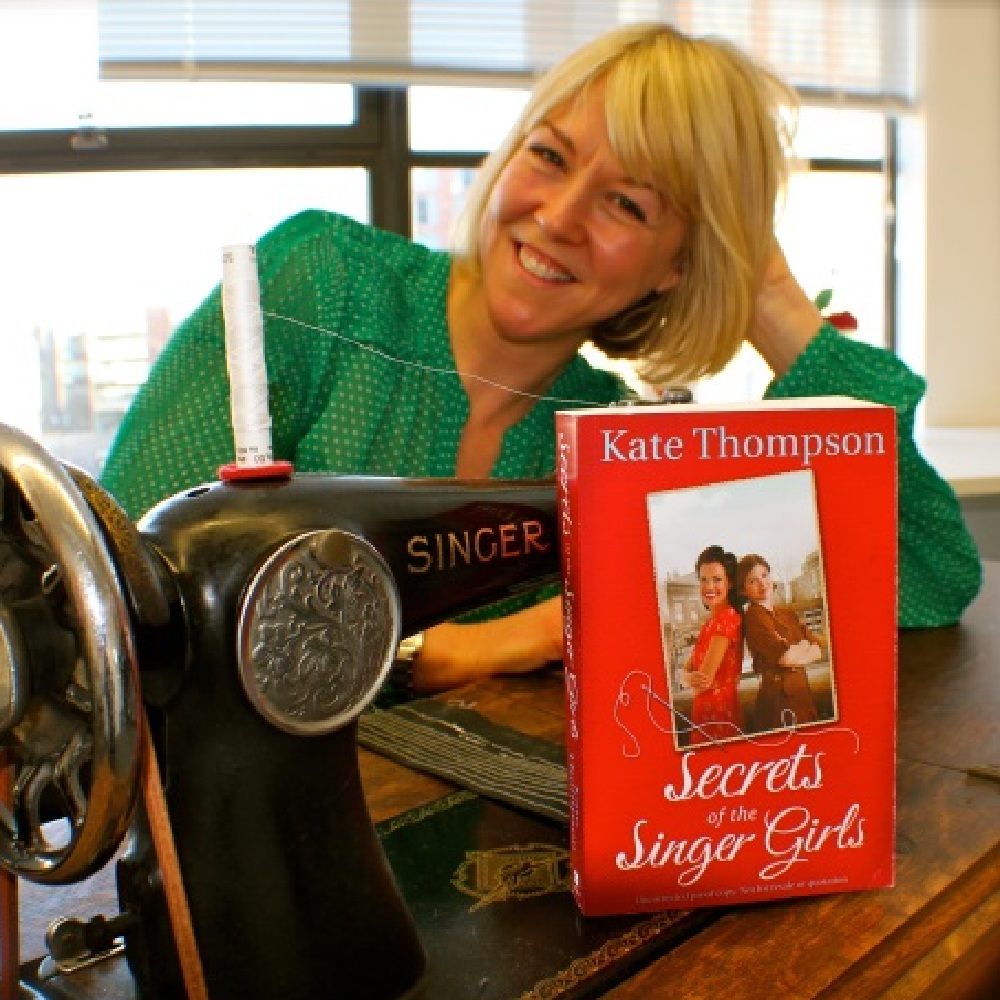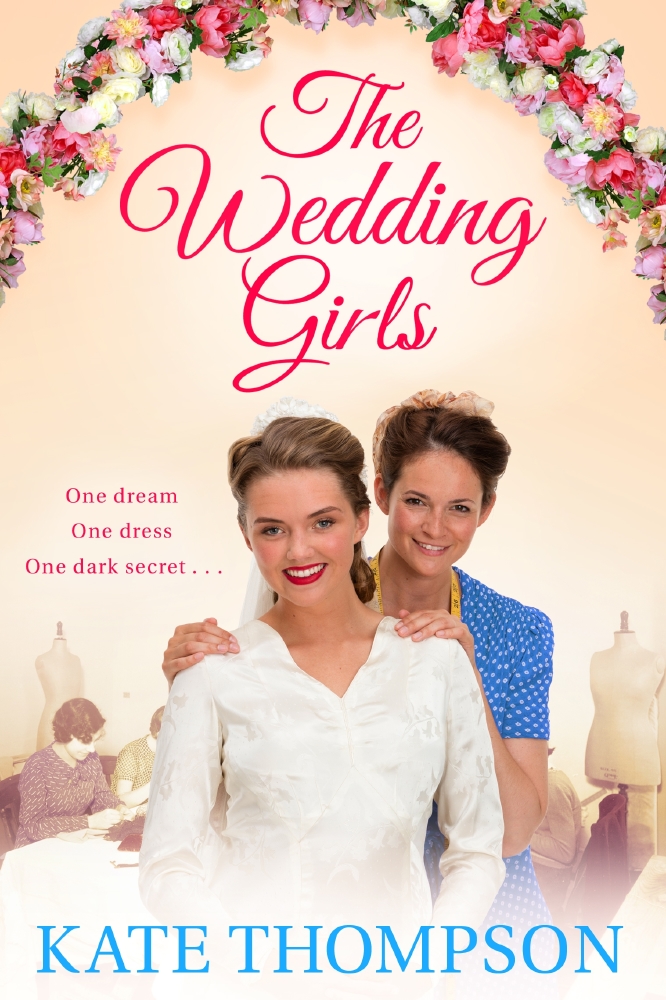I only have one GCSE. When I tell people this they are shocked. ‘What?’ they splutter, ‘but you’re a writer!’ as if only people with degrees can become authors.

Kate Thompson
I won’t lie, because of my lack of qualifications, I constantly feel at a disadvantage. It’s not that I didn’t like school, I just found boys more interesting. Teenage hormones can provide a fairly compelling distraction.
As an author specializing in historical fiction, I find myself constantly comparing my work to my peers. I wonder, “would my prose would be as rich and refined, had I done a degree in English literature?” “Would my research be as probing and pertinent as the author who had done a degree in history?” Would I be a more successful writer, or indeed a better person, if I had a whole clutch of qualifications under my belt? This is a rhetoric that I try to challenge constantly through my work and I have to come to the conclusion that instinct is a more powerful force than academia. I am still painfully aware of the lack of letters after my name, and I still grieve for the educational opportunities I squandered, but I try to tell myself that education is only a part of the picture.
I am a reigning limbo champion amongst my girlfriends. I have spent many years honing the ability to wiggle under a held up broom/stick/whatever’s to hand at parties, to the accompanying chant of ‘how low can you go?’ In fact, as I’m reading this, I’m wondering whether this point might link in someway to point one!
I worked as journalist from the age of 21. Back then, it didn’t really matter how many exams you had, as long as you weren’t afraid of hard word. I learnt so much about human nature as a features writer for newspapers and magazines. It taught me that, A, everyone has a story to tell, and B, real life is always more extraordinary than fiction. I worked on everything from crime to love rats to TOT, triumph over tragedy as we called it. It taught me how to be able to talk to people from all walks of life, often reeling from the most momentous thing that had ever happened to them. More importantly, it helped me to realise the importance of listening to people. You can’t be a writer unless you have developed a good ear. I’m constantly jotting down things I overhear, be it conversations on buses and in queues, or when I’m sitting face-to-face with someone who is telling me in-depth about their life. It’s an absolute privilege to do the work that I do, and I still find it astonishing that people allow me into their homes and lives, to share their stories with me.
I’m obsessed with the Second World War. I only knew the basics about this period of conflict. It wasn’t until I started researching it for my first novel, Secrets of the Singer Girls, that I truly realised what an astonishing time this was, particularly for women on the home front. Women from all walks of life saw their worlds changed beyond measure. During the Blitz women went about their day-to-day lives, working and raising children, whilst enduring continual bombardment and deprivation. ‘We were on the front line, and yet we had no weapons with which to fire back,’ one elderly woman told me. I think it takes a particular kind of mental endurance to survive that. I am in awe of the women who lived through it and we must always remember those who laid down their lives, not just soldiers, but the countless women and children who died. Today we reap the privileges of their sacrifices.
I live in a haunted bakery. Apparently! Last year we moved into a beautiful Grade II listed house, which used to be the bakery for the village. The ground floor of the house contains an enormous brick bread oven, which dates back to Tudor times. Shortly after we exchanged on the property, we visited the house and the owners gleefully told us that it was haunted, “not by a malevolent spirit though,” the lady of the house assured me, which was just as well as it was too late to back out by then. I’ve never encountered a ghost, but I confess the house does have a certain atmospheric feel about it. It’s higgledy-piggedly, with sloping beams and wonky floorboards, so something is always creaking and making odd noises. I believe a house as old as this, it’s believed to be 260 years old, takes on a life of its own and it has a wonderfully warm feel about it. The stone steps up to the front door are worn down from where so many people have trodden to buy their daily bread, and I just love that. Shortly after we moved my husband got a new job, helping to build a bakery plant, so our lives seem to have a weird circularity about them. Perhaps my next book should be set in a 17th century village bakery?
I gave birth in the world’s smallest toilet.
After a frankly horrific birth with my first son in hospital, drugged up to the eyeballs, when it came to my second son, I decided to do things differently and have a home birth. I had all sorts of plans, lovely soothing whale music and a warm birth pool, being amongst the principle features of this birth plan. In the event, Stanley decided to show up quite suddenly in the downstairs cloakroom toilet, taking my husband, the midwife and me by surprise. Having a homebirth was a wonderful experience though and I’m a massive advocate for natural births. That said, women must always trust their instincts and do what is right for them.
I might die on a Welsh mountainside. OK, that’s an exaggeration, but I have for some insane reason entered Snowdonia marathon this July. I love running and I adore the Welsh countryside, so it seemed like the perfect marathon for me. I won’t be doing it for time that’s for sure, but for the experience of running through that staggering landscape!
I believe public speaking should be on the school curriculum. Like many people, I dread speaking in public and this is something I’m working hard to try and overcome. I’ve joined a local Toastmasters public speaking group, which is incredibly supportive, but how I wish I had been encouraged to do more of this at school. Being able to convey your passions and speak confidently in a public arena is more important than ever, so why is this not considered a life skill taught to children at an early age?
I inherited a rescue dog. When my grandfather Alan passed away, he bequeathed to us his most precious belonging - his miniature Jack Russell Twinkle. She’s sixteen now, a little rickety and has breath that could strip paint, but we adore her. Funnily enough, since she’s joined our boisterous young family, she seems to have found her inner puppy and tears about the place with my two boys. The vet told us she has adjusted her behavior to living with children and is now “running with the pack”. How clever is that? Rescue dogs have such character and are so loving. Twinkle has brought so much joy to our family and has easily become my 9-year-old son Ronnie’s best friend.
I wish I’d got married in the 1930s. It was such an elegant era.
The Wedding Girls, my recent novel, focuses on the lives of three young women who make wedding dresses and take wedding portraits in London’s Depression-torn thirties. Glamorous weddings were a reaction to the horrors of the Great War and that, combined with the emergence of Hollywood, meant working class women were determined to sprinkle a dusting of glamour and escapism over the most important day of their lives. Looking your absolute best, in a time when no one owned a camera, much less a selfie-stick, was a badge of honour for proud, working-class East End women. Brides to be looked to the celebrities of the day, society ‘It’ girls for wedding day inspiration. They devised ingenious ways, like neighbourhood Wedding Clubs, to spread the cost of portraits. Because of the abundance of women working in the rag trade in London’s East End, brides to be often used a skilled seamstress who had made generations of their families dresses to make their wedding gown, or made it themselves, such was the skill at their fingertips. The thing that struck me again and again during research was the true significance of a wedding ceremony. Getting married was a rite of passage, a community event to be enjoyed by all, and women did so firmly in the belief that it was for life. Weddings were about love, commitment and family, not sugared almonds and selfies, perhaps something we could all learn from.

The Wedding Girls, by Kate Thompson, published by Pan Macmillan is out March 9th.

